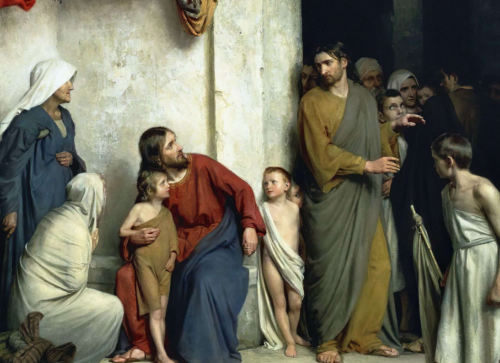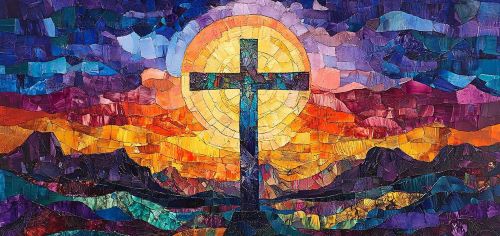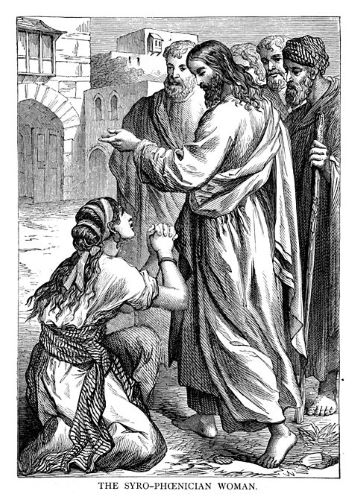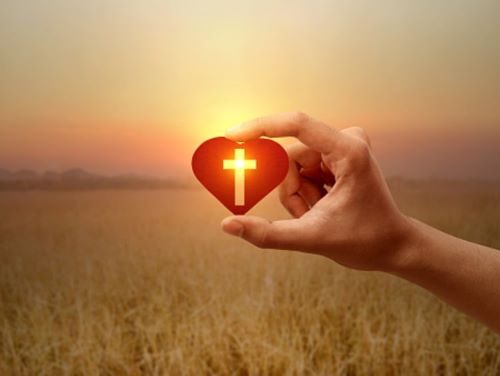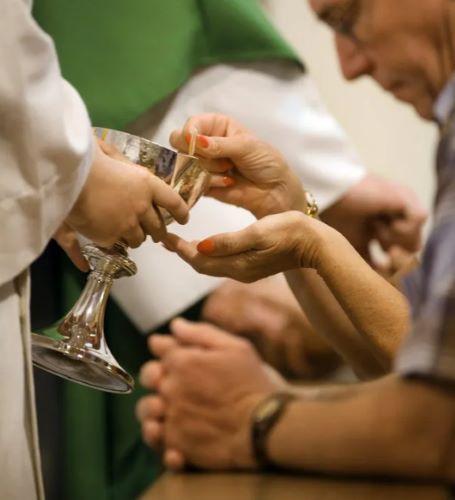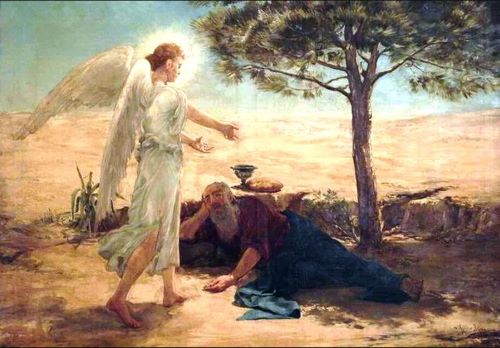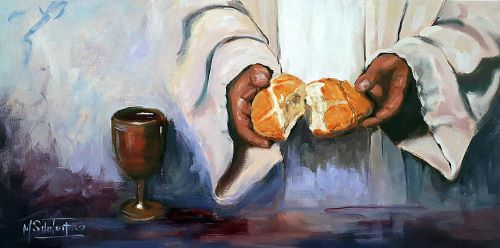Not Just In, But Into
Year B
Genesis 9:8-17
Psalm 25:1-9
1Peter 3:18-22
Mark 1:9-15
May the words of my mouth… O God… speak your Truth…
After the flood God declared… I have set my bow in the clouds… and it shall be a sign of the covenant between me and the earth… and this is where we get our word rainbow… but the Hebrew word in this verse… qeshet actually refers to a bow and arrow… Biblical scholar Nahum Sarna reminds us… that the word qeshet always designates a weapon of war…
Although a common weapon in the ancient Near East… the bow was not too common in early Israel… though the Benjaminites were noted archers… Jonathan used a bow… and later the bow became the weapon of leaders and kings… and by the time of Jeroboam… the bow may well have been Israel’s national weapon… and to throw in a little humility… Genesis 49:24 affirms that man’s ability with a bow is controlled by God…
But in his book Understanding Genesis Sarna also writes that in today’s passage… this symbol of divine hostility… has been transformed into a token of eternal reconciliation… the rainbow is a sign of God’s disarmament… the retirement of God’s war-bow to the sky… an unloaded weapon… pointing away from the earth… and an invitation for humanity to do the same…
But in 1Peter… there’s a bit of looking back we have to do… we heard that Jesus preached to the spirits in prison from Noah’s day… who did not obey God’s law… while God waited patiently… and while Noah built the ark… from our modern perspective… it’s difficult to imagine that every person who was alive when Noah was… could have done something so egregious to be deserving of death… what would that say about God… but it raises one of two questions… did Jesus go and preach to them while they were trapped in some kind of limbo… waiting for Jesus to be born… or did Jesus speak to them through Noah…
Either way… when we consider what happened immediately after Jesus’ baptism… just as he was coming up out of the water… before the dove descended… before the Spirit drove him into the wilderness… before he was tempted by Satan… before he was with wild beasts.. and before angels waited on him… before all this happened… a voice from heaven said… You are my Son… the Beloved… with you I am well pleased… and as in Luke… but unlike in Matthew… these words are for Jesus’ ears alone…
Michael Toy… a graduate of Princeton Theological Seminary writes… it’s a passage that showcases what theologians and philosophers call ontology… or Jesus’ nature of being… the Gospel writer starts by declaring Jesus’ identity… Jesus is the Son of God… the Beloved…
And so with Jesus’ identity affirmed… we can better understand what 1Peter meant when he wrote that Christ suffered once for all… the righteous One suffered for the unrighteous many in order to bring us to God… through baptism… Toy continues… it’s interesting that the author of today’s Epistle chooses to bring in the story of Noah and the flood as a prefiguring of baptism… because it’s a look backward… whether the flood is understood as a historical event or as a literary metaphor… the great flood was a devastating tragedy… and baptism is a looking backward… it’s a turning toward suffering… toward devastation… and even toward death… it’s a look backward at the wilderness from which we’ve come… not just individually… but collectively as humanity… because as a culture… as a religion… we have certainly come from a truly wild place… from a wilderness place… and we have suffered… and we have caused suffering…
In v. 5 of today’s Gospel… Mark says about the Baptizer that… people from the whole Judean countryside… and all the people of Jerusalem were going out to him… and were baptized by him in the river Jordan… in today’s Gospel… we hear that Jesus came from Nazareth [of Galilee] and was baptized by John in the Jordan… both the people “in” and Jesus “in”… but these two words in English are not the same two words in Greek… when it refers to the people… the Greek word does just mean in… but when it refers to Jesus… the Greek word means “into”… it’s a more consuming word… and as a result… Herman Waetjen [of the San Francisco Theological Seminary]… has suggested that when Jesus was baptized into the Jordan… was submerged into the water… that Jesus submitted to John’s baptism full on… and what this means… is that as God’s Son… Jesus… completely renounces the old order… rejects Empire… has his feet firmly planted in God’s realm…
Jesus was submerged into the Jewish history… and miracles… with which the Jordan was associated… for example… when the Exodus was over… and Joshua and the Israelites approached the Promised Land at Shittim… they crossed over the Jordan on dry ground… carrying the Ark of the Covenant… and that night… near Gilgal… they built an altar to God… in the story that we just heard last week… where Elisha was following Elijah… and the company of prophets kept telling Elisha that God was going to take Elijah from him that day… Elijah rolled up his mantle and struck the water and the two of them crossed over on dry ground… Elisha himself performed two miracles at the Jordan… he healed Naaman’s leprosy in 2 Kings 5:14 by having him bathe in its water… and in a story from 2 Kings 6:6… an iron axe head… which was lost in the river by one of the woodcutters… was recovered… when Elisha threw a piece of wood into the water and the iron axe head floated to the water’s surface and was retrieved…
According to the text… the Jews from Judea and Jerusalem may have encountered the water of the Jordan differently than Jesus did… just going in and not into it… they may not have submitted to the full depth of John’s baptism… they may have appreciated the idea of repentance… they may have had good intentions… they may have thought it was the thing to do… but they may have been hesitant… they may have been reluctant to give up all those behaviors and attitudes which served them well… but which prevented them from hitting God’s mark for them…
Jesus on the other hand… proved to be a more genuine disciple of John’s… as Peter writes… baptism is not the removal of dirt from the body… it is the outward sign of an inner change in identity… and that change comes not… with the exception of the pandemic… not from staying in safe protected places… but in venturing out into some of the wildernesses which surround us these days… they are not necessarily the places we want to be… but God is with us… and we are waited on by angels…
We meet some wild beasts in these wildernesses… but they can bestow spiritual gifts on us… gifts which invite us to turn our lives more sharply toward God… because God is forever ready to… in spite of our resistance… ready to bring order out of the chaos of our individual and collective lives… it’s just up to us… to set the pace…

